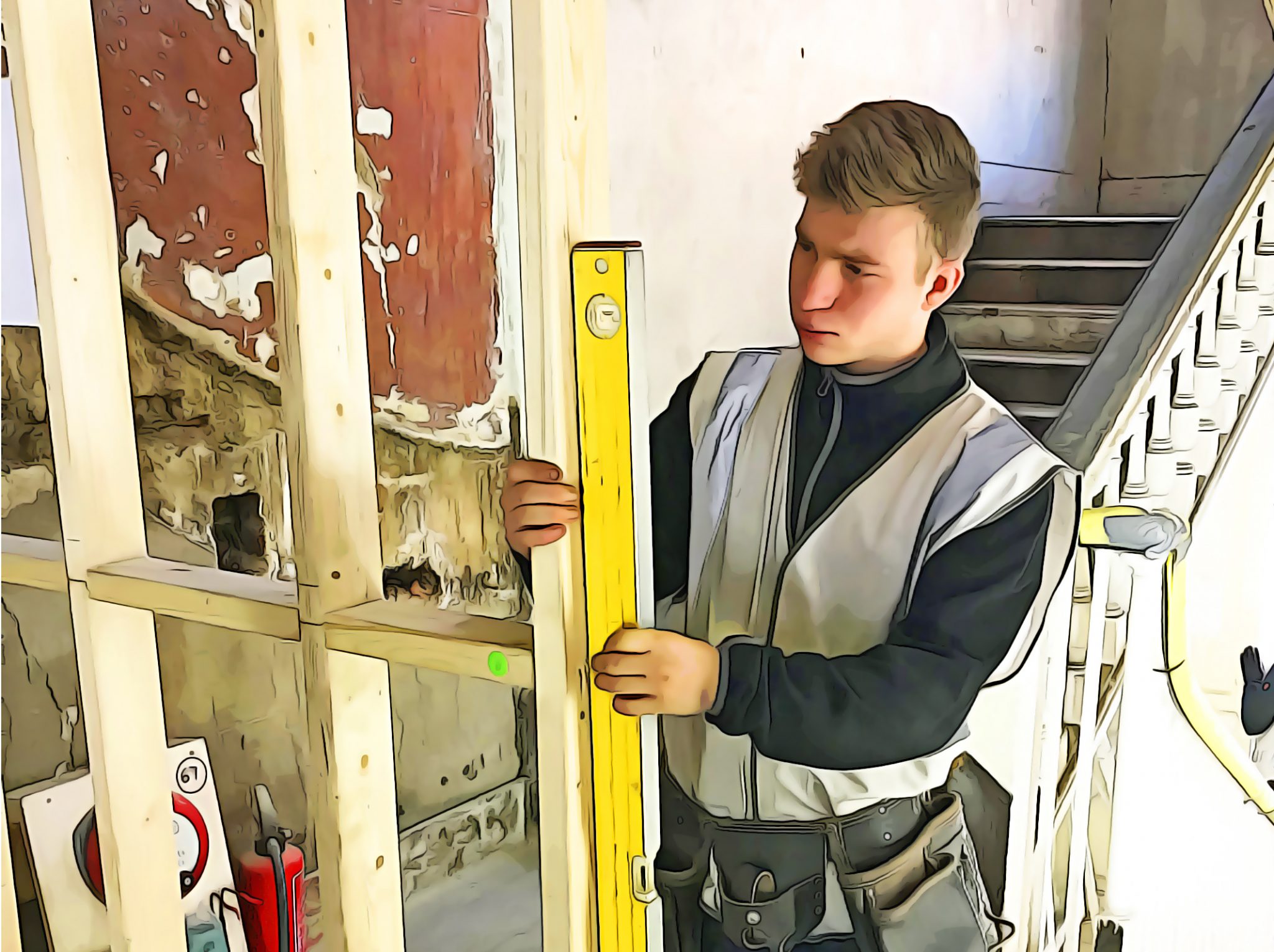The UK Construction industry has been facing a skills shortage for a number of years, with Brexit adding to the issue by discouraging EU workers from coming to the UK. The Federation of Master Builders ‘State of the Trade’ survey 2019 found that 64% of construction employers say they are struggling to hire bricklayers and 59% say they are struggling to hire carpenters.
The shortage has in recent years hit its worst recorded levels and this is something that isn’t expected to improve in the coming decades unless drastic action is taken. Recruitment of new staff is failing to keep up with the rate of retirement and The Chartered Institute of Building (CIOB) has reported that the industry will need to find 157,000 new recruits by 2021 in order to keep up with demand.
There may be various reasons why young people in the UK are not being attracted to a career in construction. It is often considered an uncertain sector, one of the first to suffer in times of economic uncertainty. The collapse of several big companies, including Carillion and concerns over the impact of Brexit have added to this perception. It may also be that school leavers are not aware of the wide variety of jobs available in the sector, believing that only those interested in training for a trade can pursue a career in the industry.
In response to this skills shortage, the government has introduced an apprenticeship levy on larger companies and committed to an additional 3,000,000 apprenticeships across all industries by 2020.
Gaysha is passionate about encouraging new talent into careers in Construction and apprenticeships are a great way to learn a trade, with young people benefitting from structured learning, on-the-job experience and ongoing support from an employer.
In this blog, we decided to talk to our carpentry apprentice, Alfie Edwards,about his experiences as an apprentice, working in the construction industry and what a day in his work life looks like.
Name: Alfie Edwards
Job: Carpentry Apprentice
Age: 21
Town: Bexleyheath
Start date: 2016
Tell us about your apprenticeship?
I chose to follow this path rather than further education as I wanted to learn a skilled trade and I feel taking this route makes you grow up a lot more quickly and you are forced to mature and take responsibility for your actions and work.
I was able to start this apprenticeship with Gaysha in 2016, as my mum knows the owner’s wife. Overall the course is three years long, an initial two-year course, followed by a final year-long course. During this period, I work six weeks on site followed by two weeks in college.
Describe an average day on site? What time do you get up, arrive on site, types of work etc?
I have to get the train into London about 6.30 am so I am on site for an 8 am start. I report at the start of the day to the Site Manager and he will set my tasks for the day. We will discuss the task and look over any measurements and drawings before I get to work. I will continue with the task until it is complete with the site manager regularly checking my progress.
We have a Tea break at 10 am and a Lunch break between 1 pm and 1.30 pm, and I finish for the day at 4.30 pm.
The majority of the tasks I am asked to complete will be carpentry but there are times when I will be asked to help out with other areas of the site, like cleaning up etc.
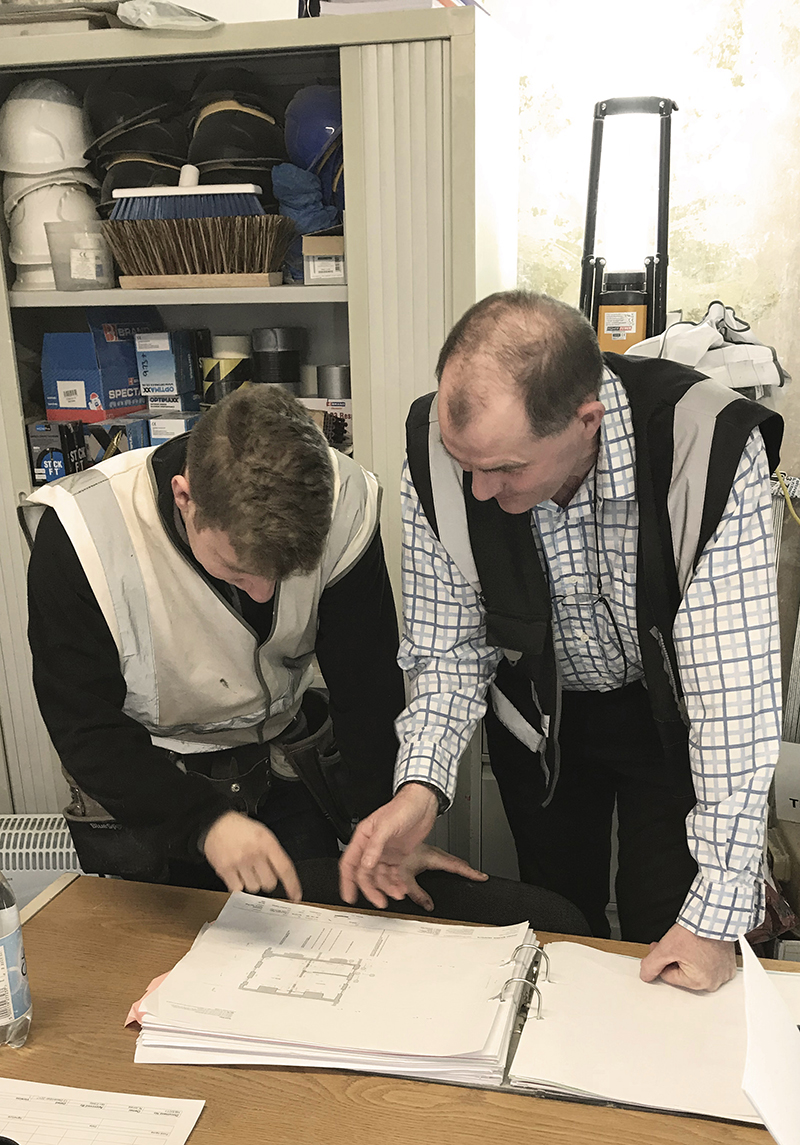
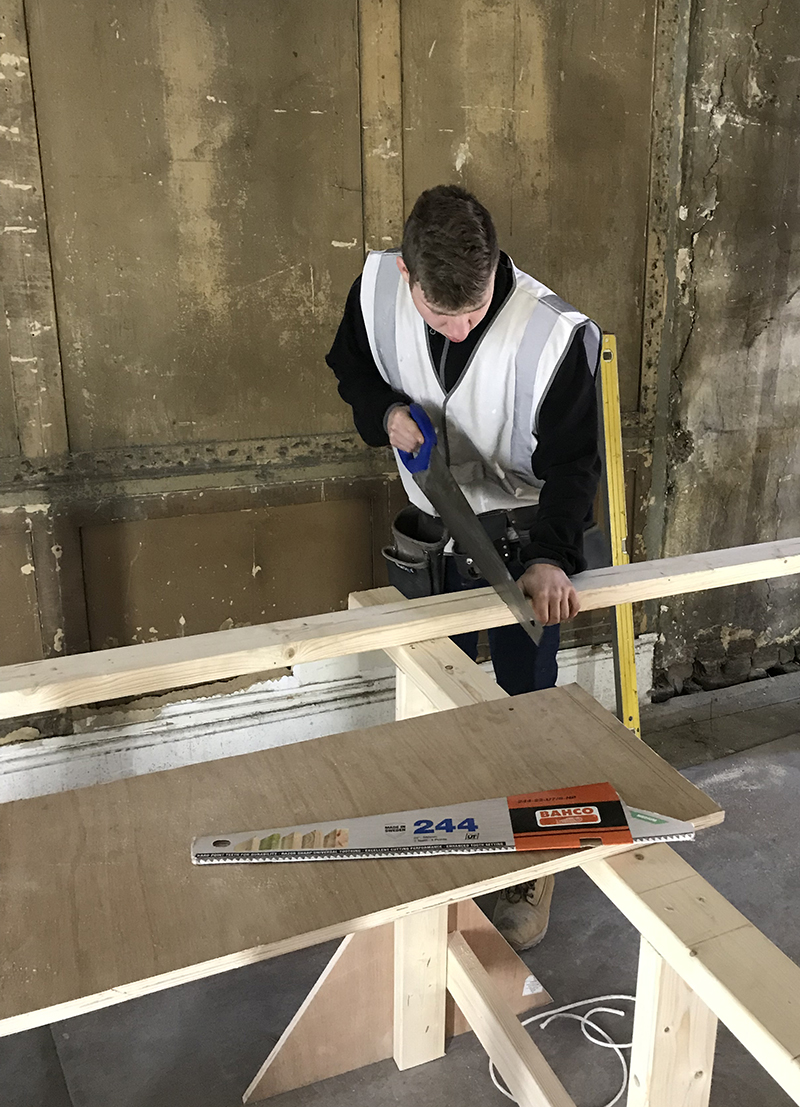
Briefly describe some of the skills you have acquired since starting your apprenticeship.
Besides obviously learning a lot of carpentry skills, there are a lot of other skills I have learned from working on sites.
It has taught me to communicate with people at different levels within the business and also with workers from other countries and cultures.
I have learned to be more precise in my work and to plan a task from the outset and I have picked up a lot of the process from Site Managers of how a successful site is run. Working on site has also taught me the skill of problem-solving which is not something that they can teach you at college.
What is the best part of your job?
I really enjoy the carpentry – it’s really rewarding when you complete a piece of work well and can see how it adds to the finished project. I really enjoy working across different sites and meeting lots of new people. You make some good friends among the people you work with.
What is the worst part of your job?
I enjoy most aspects of my job but if I was pushed to choose my least favourite part it would have to be taking in deliveries of materials on site and carrying heavy loads up and down stairs.
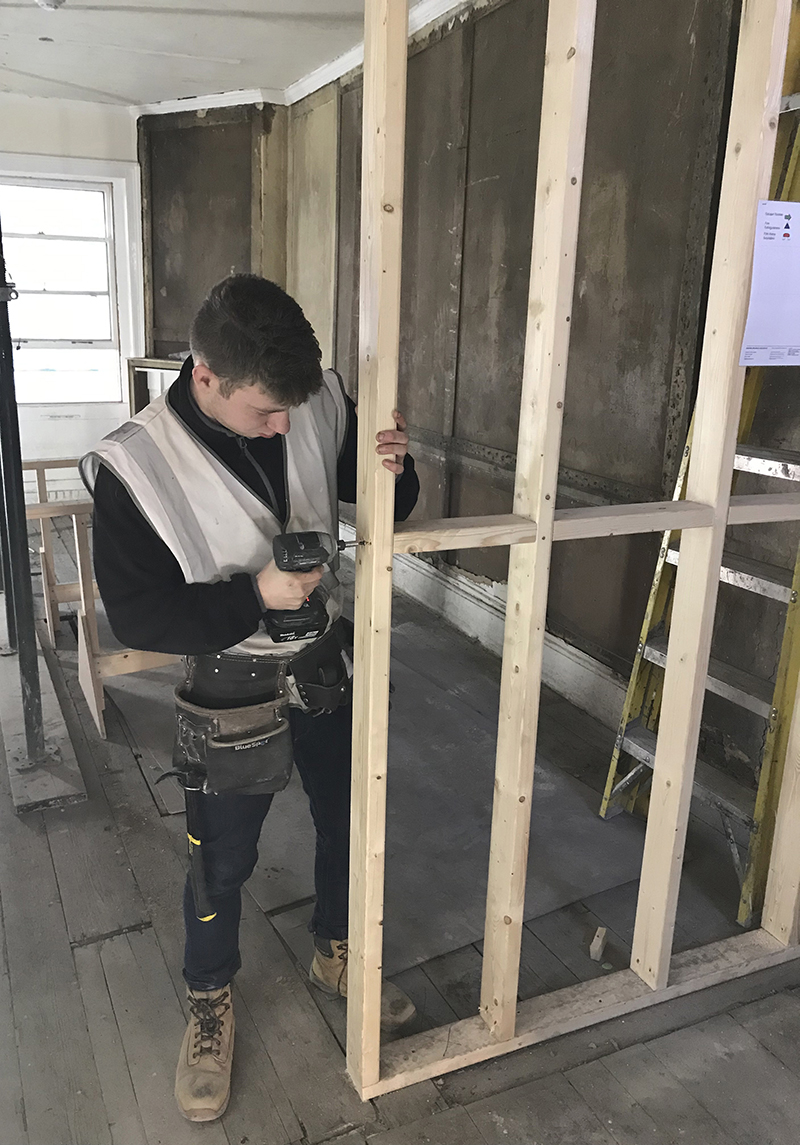
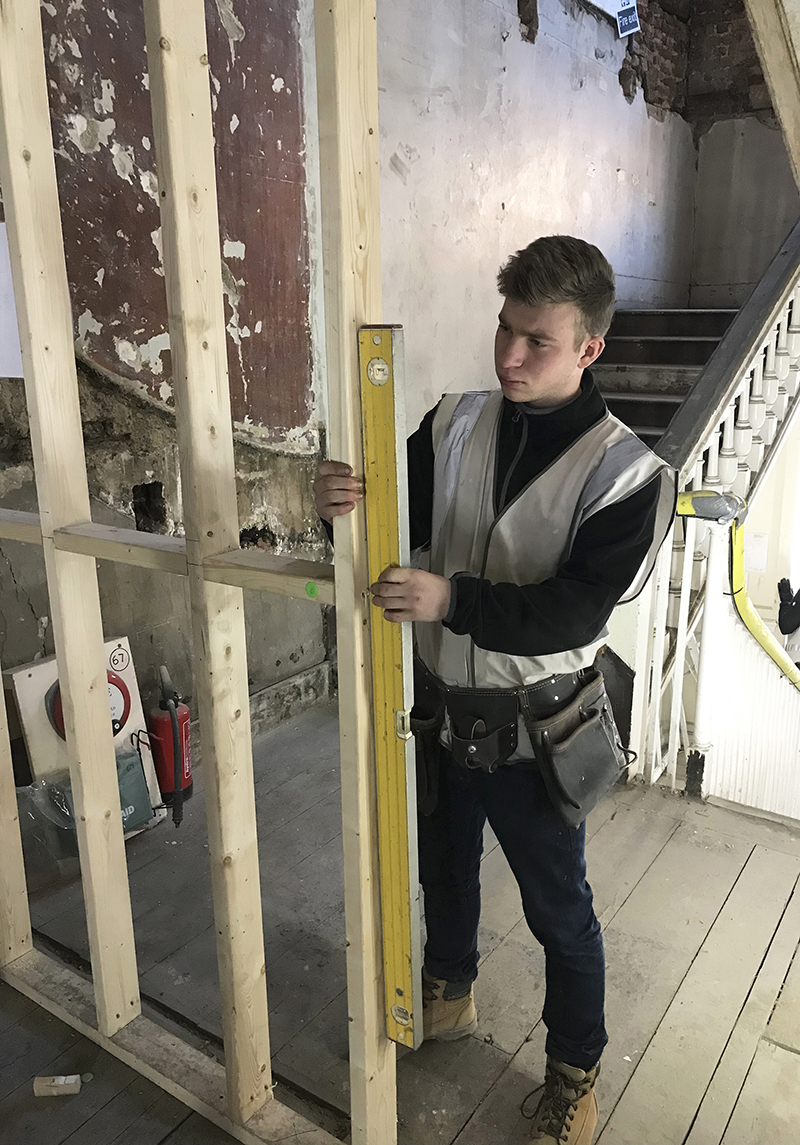
What is your proudest achievement so far?
I had to work very hard and was very proud to get my NVQ Level 2 Carpentry qualification.
Learning to fit wooden staircases was very satisfying and rewarding and I am very proud of how my overall carpentry is improving.
Is working in construction what you thought it would be?
There is a lot more paperwork than I expected when working on a refurbishment project. There are also more health and safety regulations than you would think. You have to take precautions for a lot of things that you wouldn’t expect.
Fortunately, everyone on site looks out for each other and the Site Managers give a lot of toolbox talks and guidance on what you need to be aware of to keep yourself safe.
Do you have any advice for someone looking to start an apprenticeship?
One piece of advice I would have for anyone considering an apprenticeship is to make sure that you are with an employer who can guarantee you regular work. Without regular on-site work, you won’t be able to gather the evidence required to complete the college course.
What do you think we can do as an industry to get more young people interested in a career in construction?
I think construction companies need to keep advertising a wide range of jobs to make young people aware that a career in construction is an option. It is difficult because building sites are hazardous so you can’t really take a young person on for a day of work experience to give them a taste of what it is like. But I think sending apprentices to talk to young people at career events might get the message across that this is a good option and an interesting industry to work in.
Where do you see yourself in five years time?
In five years, I see myself as a fully qualified Level 3 Carpenter working on interesting and varied projects which challenge me and allow me to put my skills to good use.
We would like to thank Alfie for taking the time to talk to us and hope that reading his experiences might encourage other young people to consider a career in the construction industry. As part of the five-year plan outlined in Gaysha’s Sustainability Charter, we have committed to employing more residents from the areas we operate in.

Interview by Dom Mahoney at Gaysha Ltd, a London-based fit out & refurbishment contractor operating across the residential, commercial and industrial sectors.
Gaysha Ltd, 5th Floor, 8-10 Grosvenor Gardens, London SW1W 0DH
Tel: 0203 887 3623 Email: info@gaysha.co.uk Web: www.gaysha.co.uk

